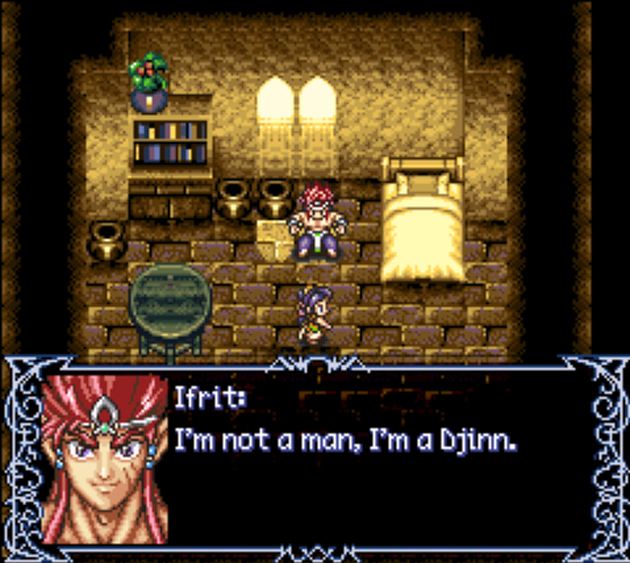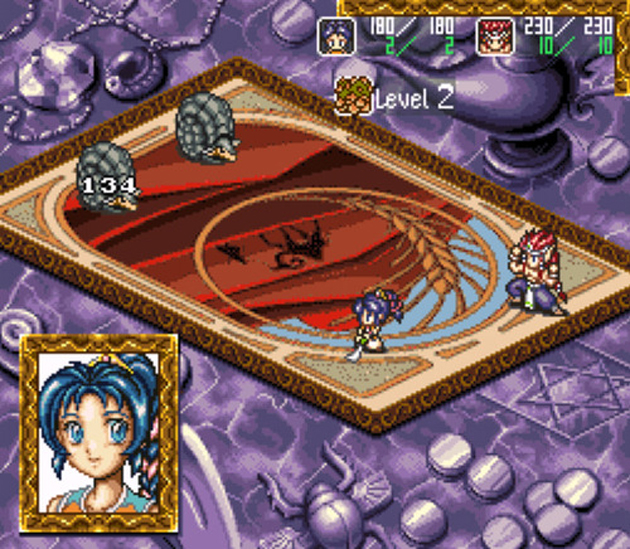Arabian Nights: You Won’t Get Sand in Your Shoes
Near the end of the 16-bit era, a small Japanese developer named Pandora’s Box delighted role-playing game enthusiasts with Arabian Nights for the Super Famicom.
We Westerners were not nearly as delighted, since it never made it overseas. It’s not all that surprising, since the Nintendo 64 was just months away from release and many gamers were saving their cash for the bevy of next-generation games that would soon be flooding store shelves. American publishers in the 90s were hesitant to release Japanese RPGs to begin with, and they were definitely afraid of obscure ones like Arabian Nights if there wasn’t some big-name development team to back them up.
For the most part, Arabian Nights is the standard RPG fare: turn-based battles, casting magic, using skills, equipping weapons — you know the score. The exception is the cards you find during the game. (Relax, it’s not Yu-Gi-Oh; you’re not summoning anything.)
The cards come in nine assorted flavors of Earth, Fire, Wind, Water, Tree, Moon, Light, Dark, and Steel. There are five cards of every type, and each one causes a different effect on the battlefield — from adding an element to enhancing your attacks to cause critical hits with certainty. These cards add a level of strategy on top of the basics you’d expect from a JRPG, and you’d likely be needing the extra help they provide. This game takes no mercy on the ill-prepared.
You play as a young woman named Shukran, who stumbles upon a ring that’s imprisoning a djinn. This particular djinn can’t be free of the spell until he grants 1,000 wishes, and he’s currently at 999 — he only needs to grant one more wish to earn his freedom. Of course, Shokran’s wish is a hefty, albeit selfless one: She wishes to bring peace to the land.
As the current owner of the ring, she journeys alongside her new companion as he cleanses the land of its ills. It’s worth noting that even with a somewhat trite story, the characters are remarkably well-developed, sympathetic, and memorable.
Arabian Nights is might not be groundbreaking, but it’s very good at handling the basics. The visuals are bursting with color, and the music is catchy and modern while retaining the style expected from a game called Arabian Nights.
If you’re going to try this one out, you should definitely check out LostTemplar’s translation (if you can still find it). A whole lot of time, love, and effort went into this game — from the translation team and the original developer. Arabian Nights is a wonderful treat that’s well worth tracking down.


